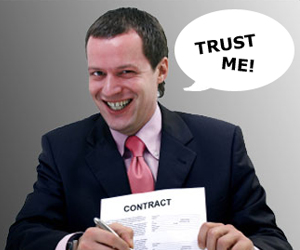Timeshare presentations have earned a reputation for their high-pressure sales tactics, leaving many potential buyers feeling overwhelmed and coerced. In this article, we will delve into the manipulative techniques used in timeshare presentations and the psychology behind these tactics.
1. The Pitch
Timeshare presentations typically begin with a friendly and persuasive pitch, where sales representatives extol the virtues of timeshare ownership. The pitch often highlights:
a. Exclusive Offers: Sales representatives may claim that the offer is exclusive and only available to a select few.
b. Limited Availability: They may suggest that the opportunity is limited, creating a sense of urgency.
c. Emotional Appeal: Salespeople use emotional appeals to connect with potential buyers, often referencing family vacations, memories, and the desire for relaxation.
2. High-Pressure Sales Tactics
Once the initial pitch is made, the pressure is turned up a notch. Common high-pressure sales tactics include:
a. Extended Presentations: Presentations are often intentionally long, making it difficult for potential buyers to leave without making a commitment.
b. Multiple Salespeople: Several salespeople may be involved in the presentation, each playing a specific role in the persuasion process.
c. Isolation: Potential buyers may be isolated from external influences, such as friends or family members, who might offer alternative perspectives.
d. Manipulative Language: Sales representatives may use manipulative language to encourage commitment, such as “Do you want to secure your family’s future vacations?”
e. Limited Time Offers: Salespeople may present limited-time offers that pressure buyers to make quick decisions.
3. The Power of Free Gifts
Timeshare presentations often lure potential buyers with the promise of free gifts or incentives, such as:
a. Free Vacations: Salespeople offer free vacations as a reward for attending the presentation.
b. Discounts: Special discounts or pricing for attendees are frequently mentioned.
c. Free Gifts: Small gifts, such as electronic devices or vouchers, may be offered to encourage attendance.
4. Creating a Fear of Missing Out
Sales representatives use the fear of missing out (FOMO) to persuade potential buyers:
a. Scarcity Tactics: Salespeople suggest that the opportunity is limited and may not be available if not seized immediately.
b. Peer Pressure: They may mention that others have already committed to the offer, creating a sense of peer pressure.
5. Emotional Manipulation
Emotional manipulation plays a significant role in timeshare presentations:
a. Family Bonding: Sales representatives emphasize the importance of family bonding and suggest that timeshare ownership will strengthen family ties.
b. Guilt and Obligation: Potential buyers may be made to feel guilty for potentially depriving their families of such wonderful experiences.
c. Fear of Regret: Salespeople instill a fear of future regret, suggesting that passing up the opportunity will result in a lifetime of missed memories.
6. Overcoming Objections
Sales representatives are trained to handle objections effectively, often with responses that downplay concerns:
a. Cost Justification: They justify the high cost of timeshares by comparing it to the expenses of traditional vacations.
b. Resale Value: Representatives may claim that timeshares appreciate in value over time.
c. Exit Options: They downplay concerns about exit challenges and suggest that resale is easy.
7. The Psychological Impact
These manipulative tactics have a psychological impact on potential buyers:
a. Cognitive Dissonance: Potential buyers may experience cognitive dissonance, where their beliefs (that the timeshare is too expensive) conflict with their actions (purchasing it). This discomfort can lead to an impulsive decision to resolve the conflict.
b. Emotional Triggers: Emotional appeals trigger feelings of nostalgia and a desire for memorable family experiences, making it difficult to say no.
c. Pressure-Induced Commitment: High-pressure tactics can lead to commitment due to the discomfort of the situation rather than a genuine desire to buy.
Conclusion
Timeshare presentations are a hotbed of manipulative sales tactics designed to persuade potential buyers to commit to ownership. Understanding the psychology behind these techniques can help consumers recognize and resist high-pressure tactics. It is essential for individuals attending timeshare presentations to approach them with a critical eye, ask questions, and seek time to consider their decision independently. Additionally, supporting efforts to regulate the timeshare industry and promote ethical sales practices is crucial in addressing these manipulative techniques.



